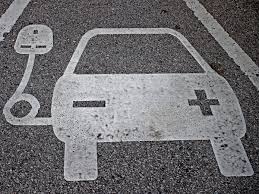
With announcing a ban on sales of new fossil fuel-powered cars starting 2030m Britain has set its set its program of vehicle electrification on the fast lane. And to meet the anticipated demand of car batteries, the government has offered 1 billion pounds ($1.4 billion) to kick start its domestic battery industry and the related supply chain.
Despite the 2030 target of banning of fossil fuel vehicles as announced by the United Kingdom being sooner than many other country by a number of years, its lags behind the European Union in developing a supply chain and far behind China in this regards as it is the it market leader in electric vehicle (EV) battery production.
Brexit however has set a tough challenge for Britain. If the country wants to keep selling its electric vehicles to the 27-naiton market of the EU without any tariffs, the country’s car industry, which gives employment to a total of about 170,000 people, needs to make sure that the electric vehicles and the batteries powering the vehicles are able to adhere to the stringent rules of origin – which mandates that up to 70% of the parts of vehicles in value terms should have its origin in Britain or in the EU.
Britain needs more battery factories – fast, if it is to meet its deadline of fossil fuel vehicle ban from 20203 and a ban on hybrid vehicles from 2035.
Amid such an environment, the plans of building a 9 gigawatt hour battery plant in Britain by Japan’s Nissan – a project that has been hailed by the British government, is no match to the two battery factories that are being set up in Germany – one by Tesla with a combined output of 50 GWh and another 40 GWh battery factory by Volkswagen.
"We have come rather late to the party," said Douglas Johnson-Poensgen, chief executive of Britain's Circulor, who has worked with Volvo Cars and others on building sustainable supply chains.
The government agencies are trying to ensure to put Britain as the leader in in the auto industry, says the Department for Business, Energy and Industrial Strategy (BEIS), at the heart of Britain's EV investment drive.
"We remain dedicated to securing UK gigafactories, and continue to work with investors to progress plans to mass manufacture the batteries needed for the next generation of electric vehicles," a spokesperson for the agency said in an emailed statement.
On the other hand, a transformation of its car industry is being pushed ahead at full steam by the EU with the target of catching up with China. The auto industry is a major employer right across the EU – and particularly in Germany and France.
The EU has announced a proposed policy of banning sales of new petrol and diesel cars from 2035 and has earmarked 2.9 billion euros ($3.4 billion) from 12 EU states for supporting development of new auto battery factories.
"The UK government needs to wake up and invest in the supply chain," said Matt Windle, managing director of British sports carmaker Lotus. "We've got the knowledge, we've got the people, we just need the supply chain."
(Source:www.energyworld.com)
Despite the 2030 target of banning of fossil fuel vehicles as announced by the United Kingdom being sooner than many other country by a number of years, its lags behind the European Union in developing a supply chain and far behind China in this regards as it is the it market leader in electric vehicle (EV) battery production.
Brexit however has set a tough challenge for Britain. If the country wants to keep selling its electric vehicles to the 27-naiton market of the EU without any tariffs, the country’s car industry, which gives employment to a total of about 170,000 people, needs to make sure that the electric vehicles and the batteries powering the vehicles are able to adhere to the stringent rules of origin – which mandates that up to 70% of the parts of vehicles in value terms should have its origin in Britain or in the EU.
Britain needs more battery factories – fast, if it is to meet its deadline of fossil fuel vehicle ban from 20203 and a ban on hybrid vehicles from 2035.
Amid such an environment, the plans of building a 9 gigawatt hour battery plant in Britain by Japan’s Nissan – a project that has been hailed by the British government, is no match to the two battery factories that are being set up in Germany – one by Tesla with a combined output of 50 GWh and another 40 GWh battery factory by Volkswagen.
"We have come rather late to the party," said Douglas Johnson-Poensgen, chief executive of Britain's Circulor, who has worked with Volvo Cars and others on building sustainable supply chains.
The government agencies are trying to ensure to put Britain as the leader in in the auto industry, says the Department for Business, Energy and Industrial Strategy (BEIS), at the heart of Britain's EV investment drive.
"We remain dedicated to securing UK gigafactories, and continue to work with investors to progress plans to mass manufacture the batteries needed for the next generation of electric vehicles," a spokesperson for the agency said in an emailed statement.
On the other hand, a transformation of its car industry is being pushed ahead at full steam by the EU with the target of catching up with China. The auto industry is a major employer right across the EU – and particularly in Germany and France.
The EU has announced a proposed policy of banning sales of new petrol and diesel cars from 2035 and has earmarked 2.9 billion euros ($3.4 billion) from 12 EU states for supporting development of new auto battery factories.
"The UK government needs to wake up and invest in the supply chain," said Matt Windle, managing director of British sports carmaker Lotus. "We've got the knowledge, we've got the people, we just need the supply chain."
(Source:www.energyworld.com)





